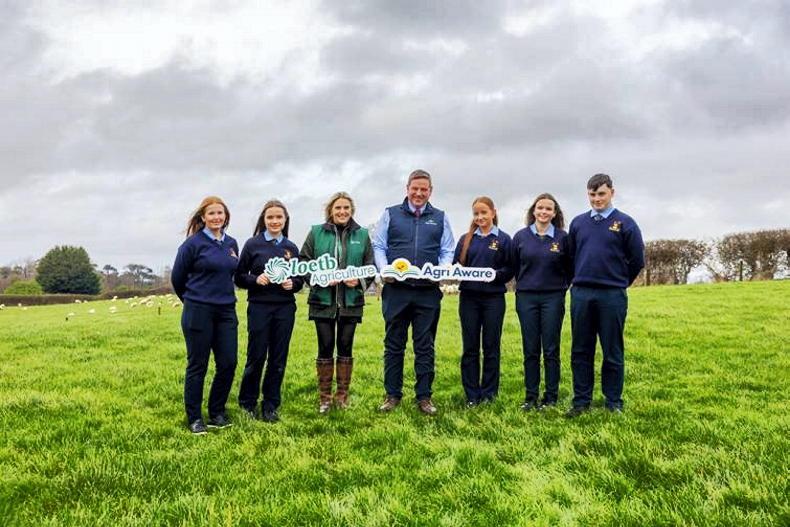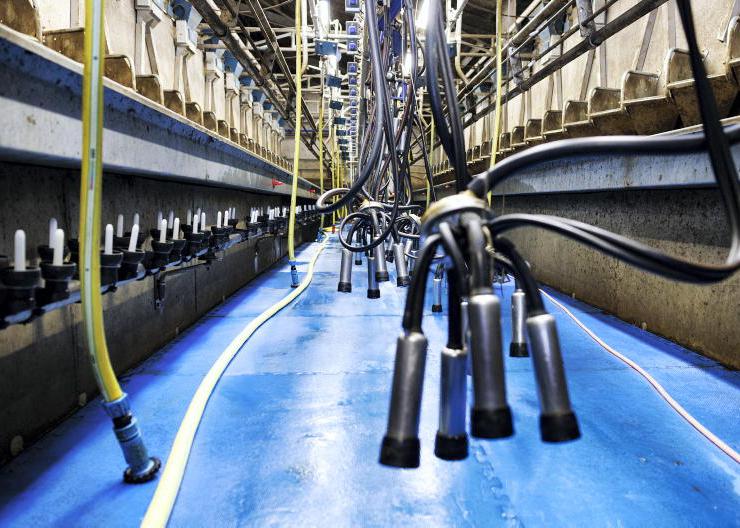Teagasc and farmer representatives are meeting this Friday in Kildalton College, Co Kilkenny, to work on the curriculum of new farm apprenticeships.
An initial meeting took place in February between Teagasc, the IFA, ICMSA, Macra and farmers involved in apprenticeships in the past. They submitted their plans to the Apprenticeship Council of Ireland last month.
This work follows Minister for Education Richard Bruton’s decision to approve six new agricultural apprenticeships last December:
Farm technician (Level 6).Farm management (Level 7).Sportsturf management (Level 6).Stud farm management (Level 7).Applied horticulture (Level 6).Arboriculture (Level 5).Teagasc is coordinating the first five, while the arboriculture apprenticeship is proposed by the Galway and Roscommon Education and Training Board with local tree businesses.
A consortium formed by the participants in February’s meeting is now focusing on developing the two farm apprenticeships.
All participants contacted by the Irish Farmers Journal reported enthusiastic support for the project.
Teagasc director Prof Gerry Boyle said that stakeholders had expressed the need for “work-based learning programmes to complement more traditional education”.
The courses will revive the tradition established by the Farm Apprenticeship Board, which operated from 1964 until it was wound up and incorporated into Teagasc in 2001.
“The old scheme ran out of applicants in Celtic Tiger years when construction attracted people away and quotas were still in place,” said Co Cork dairy farmer Tim O’Leary.
He was the IFA’s last representative on the board and trained apprentices for many years on his own farm.
Co Wicklow tillage farmer Tom Short completed the apprenticeship in 1984 and then hosted apprentices for 25 years.
“I got a great grounding,” he told the Irish Farmers Journal. “I was placed on a farm well away from home – you had to grow pretty rapid.”
As IFA regional chair for south Leinster, Short is now taking part in the consortium and said: “All stakeholders are very strong in the view that farm jobs should not be different from any other jobs in construction or elsewhere.”
Dairy farms are seen as the main host destinations for apprentices because of their labour needs, but the courses will cover wider agricultural education.
“The issue will be to retain people,” O’Leary warned.
How will it work?
Training is expected to start in September 2019.Each apprenticeship will last two years (four years in total for farm management).At least half the time will be spent working on one or numerous farms, with blocks of several weeks in college.Apprentices will be paid for their work on farms.Host farms will need to obtain approval before hiring apprentices.Apprentices will not be allowed complete their practical work on their home farm. Read more
Apprenticeships used to solve labour shortages
Teagasc and farmer representatives are meeting this Friday in Kildalton College, Co Kilkenny, to work on the curriculum of new farm apprenticeships.
An initial meeting took place in February between Teagasc, the IFA, ICMSA, Macra and farmers involved in apprenticeships in the past. They submitted their plans to the Apprenticeship Council of Ireland last month.
This work follows Minister for Education Richard Bruton’s decision to approve six new agricultural apprenticeships last December:
Farm technician (Level 6).Farm management (Level 7).Sportsturf management (Level 6).Stud farm management (Level 7).Applied horticulture (Level 6).Arboriculture (Level 5).Teagasc is coordinating the first five, while the arboriculture apprenticeship is proposed by the Galway and Roscommon Education and Training Board with local tree businesses.
A consortium formed by the participants in February’s meeting is now focusing on developing the two farm apprenticeships.
All participants contacted by the Irish Farmers Journal reported enthusiastic support for the project.
Teagasc director Prof Gerry Boyle said that stakeholders had expressed the need for “work-based learning programmes to complement more traditional education”.
The courses will revive the tradition established by the Farm Apprenticeship Board, which operated from 1964 until it was wound up and incorporated into Teagasc in 2001.
“The old scheme ran out of applicants in Celtic Tiger years when construction attracted people away and quotas were still in place,” said Co Cork dairy farmer Tim O’Leary.
He was the IFA’s last representative on the board and trained apprentices for many years on his own farm.
Co Wicklow tillage farmer Tom Short completed the apprenticeship in 1984 and then hosted apprentices for 25 years.
“I got a great grounding,” he told the Irish Farmers Journal. “I was placed on a farm well away from home – you had to grow pretty rapid.”
As IFA regional chair for south Leinster, Short is now taking part in the consortium and said: “All stakeholders are very strong in the view that farm jobs should not be different from any other jobs in construction or elsewhere.”
Dairy farms are seen as the main host destinations for apprentices because of their labour needs, but the courses will cover wider agricultural education.
“The issue will be to retain people,” O’Leary warned.
How will it work?
Training is expected to start in September 2019.Each apprenticeship will last two years (four years in total for farm management).At least half the time will be spent working on one or numerous farms, with blocks of several weeks in college.Apprentices will be paid for their work on farms.Host farms will need to obtain approval before hiring apprentices.Apprentices will not be allowed complete their practical work on their home farm. Read more
Apprenticeships used to solve labour shortages









SHARING OPTIONS